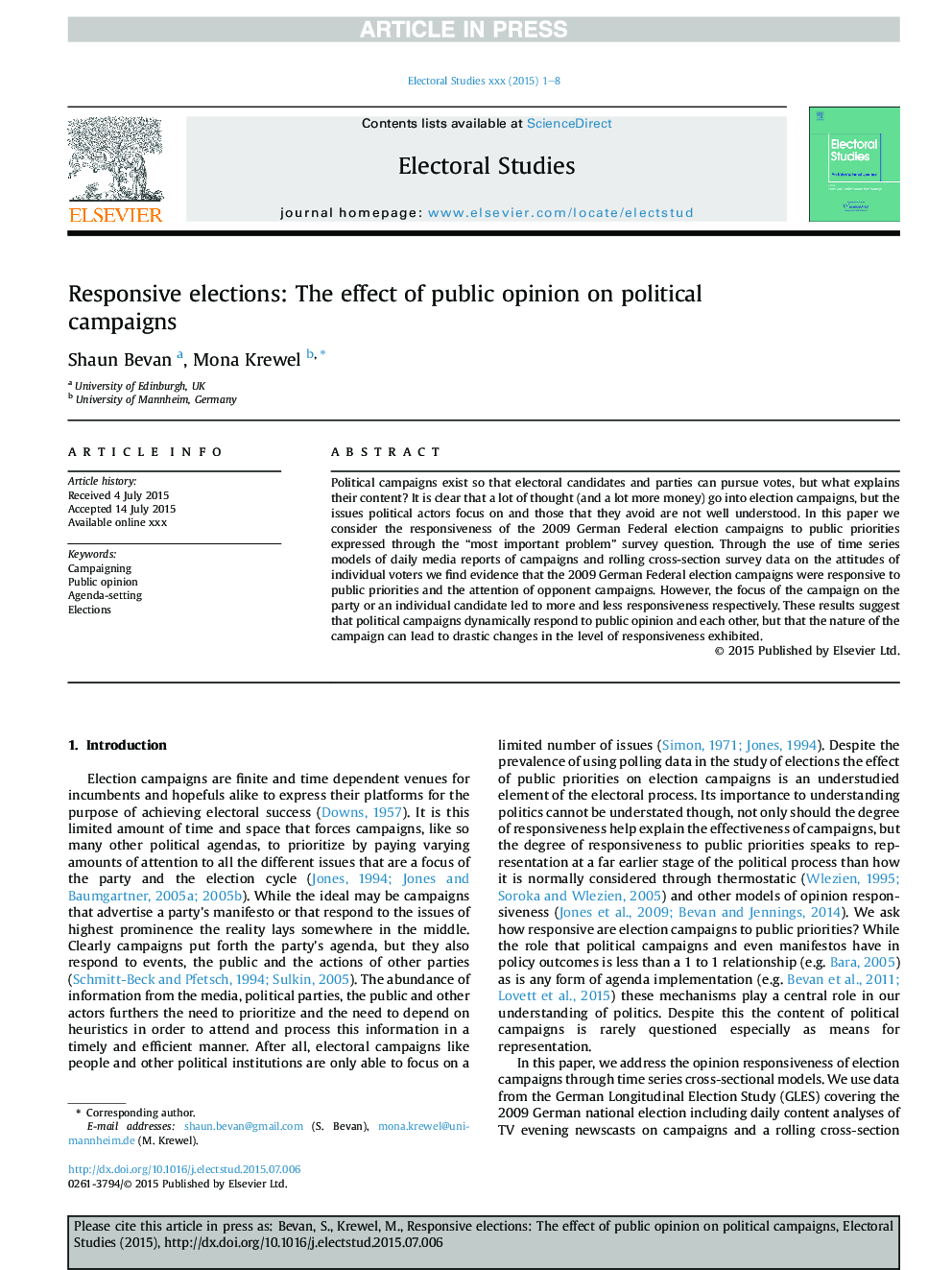| Article ID | Journal | Published Year | Pages | File Type |
|---|---|---|---|---|
| 7464042 | Electoral Studies | 2015 | 8 Pages |
Abstract
Political campaigns exist so that electoral candidates and parties can pursue votes, but what explains their content? It is clear that a lot of thought (and a lot more money) go into election campaigns, but the issues political actors focus on and those that they avoid are not well understood. In this paper we consider the responsiveness of the 2009 German Federal election campaigns to public priorities expressed through the “most important problem” survey question. Through the use of time series models of daily media reports of campaigns and rolling cross-section survey data on the attitudes of individual voters we find evidence that the 2009 German Federal election campaigns were responsive to public priorities and the attention of opponent campaigns. However, the focus of the campaign on the party or an individual candidate led to more and less responsiveness respectively. These results suggest that political campaigns dynamically respond to public opinion and each other, but that the nature of the campaign can lead to drastic changes in the level of responsiveness exhibited.
Related Topics
Social Sciences and Humanities
Social Sciences
Geography, Planning and Development
Authors
Shaun Bevan, Mona Krewel,
